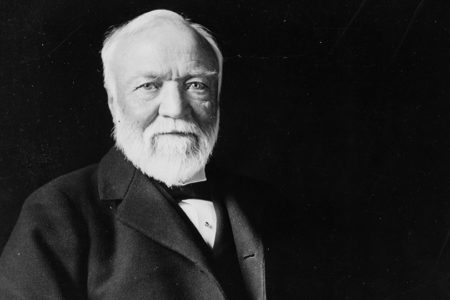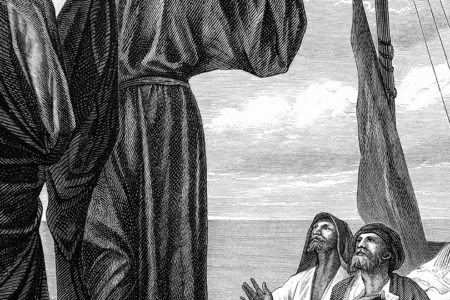Understanding the Kingdom
Many people refer to the “Kingdom” these days. But to what are they referring? And does their definition agree with the Bible?
*For definitions see Glossary.
The topic of the Kingdom of God dominates Jesus’ teaching in the Gospels. Yet throughout church history, an amazing disunity has characterized the interpretation of the phrase. The Bible certainly uses it in more than one way, which may lead to confusion if we do not rightly divide the Word of God.
The Kingdom of God, for example, refers to God’s sovereign rule over the entire universe at all times. God providentially rules over nature (Ps. 104) and raises up and pulls down nations (Dan. 4:3, 34–35). He is the boss of the universe, and the terminology of Kingdom is sometimes used to feature that idea.1
Since Jesus is God, He rules over the entire universe, which He made (Jn. 1:1–3). In this sense, we can say Jesus is reigning today.
But the Bible also expresses God’s sovereign rule in more specific ways. The apostle Paul taught that Jesus is the Head of the church (Eph. 1:22), which means He is the boss and rules over it.
Christ works spiritually in and through Church Age believers, who are seated positionally in “heavenly places” with Him (v. 20). Jesus governs the lives of believers, especially as they submit to the work of God’s Word and the Spirit in their lives (Eph. 5:18; Col. 3:16).
The Bible’s most frequent use of the word Kingdom refers to Christ’s earthly, political, ethnic, Israel-centered Kingdom that will begin in the last days. This Kingdom has several names: Messianic Kingdom, Davidic Kingdom, and Eschatological Kingdom.
The Kingdom is referred to as the Messianic Kingdom because Messiah Jesus will return to establish this specific rule of God on Earth (Isa. 11; Dan. 7; Zech. 14; Rev. 19). It is also called the coming Davidic Kingdom because it will fulfill God’s promise to King David in the Davidic Covenant to send the Messiah to reign forever from David’s throne in Jerusalem (2 Sam. 7; Ps. 89; Amos 9:11–15). And it is sometimes called the Eschatological Kingdom because Christ will establish it in the last days. (Eschatology is the study of last-days events.)
The Kingdom will usher in Israel’s national and spiritual restoration (Joel 3; Ezek. 36; Dan. 7:13–14). The Millennium, Christ’s 1,000-year reign on the present earth, will be the grand “kickoff party” that jumpstarts this specific earthly rule of God (Rev. 20). The eternal state will follow and consummate God’s plan to rule eternally in His Kingdom on Earth (Rev. 21—22).
Departure From Truth
Unfortunately, this future, earthly Kingdom centered in Israel and launched at Christ’s Second Coming has been ignored or redefined since the early days of the church. As early as the second century, church fathers began calling Christians the “true Israelite race.”2 They jettisoned Jewish aspects of the Messianic Kingdom in favor of a Christian-only version of Premillennialism* (the view that Christ will return before the Millennium).
By the time of Origen in the third century, many Christians had abandoned Premillennialism altogether for a robust Amillennialism* (no-Millennium view) that sees the church as the Kingdom.3 Using an allegorical, rather than literal, interpretation, they redefined Scripture’s promises of a future, earthly, Israel-centered Kingdom to mean a spiritual Kingdom that characterizes the time between Christ’s two advents. (It is important to note, however, that throughout church history, Premillennialism never vanished.)
Naturally, this redefinition viewed the Millennium of Revelation 20:1–6 as events that began with Christ’s First Coming, instead of events to follow His Second Coming, as described in Revelation 19:11–16. This redefinition of the Kingdom was part of the overall theology that saw the church as replacing Israel in God’s plan.4 This replacement view dominated Christianity through the Reformation.
Other Redefinitions
Another redefinition of the Kingdom arose in the late 17th and early 18th centuries. Its codifier was Daniel Whitby, whose work A Treatise on the True Millennium (1703) argued that the church triumphant would usher in the Kingdom by successfully evangelizing and Christianizing society’s institutions. Jesus would then return at the end of the Millennium.
Whitby’s postmillennial* redefinition of the Kingdom became the most prominent view among American evangelicals during the 19th and early 20th centuries. It was easy to view the Kingdom in terms of the church’s upward progress during the heady days of the rise of 19th-century American economic and military might. But the harshness of the 20th century’s two world wars and the Holocaust failed to support the optimism inherent in postmillennial dreams of progress; so the view fell out of favor.
At the same time, a revival of Premillennialism* was underway. Of special interest was the rise of dispensational forms of Premillennialism in the early 19th century, which, in essence, constituted a rediscovery of the Jewish perspective on the Bible.5
Dispensationalism,* which never confuses Israel with the church, brought about a return to a more literal understanding of God’s promises to Israel in the Old Testament, including belief in Israel’s future restoration to the Promised Land. Political events seemed to bolster the view: The modern Zionist movement began in the 1890s, and Israel became a nation again in 1948—after almost 1,900 years of dispersion.
As a result, this biblical view rose to prominence among Bible-believing Christians in America following the Second World War.
Recently, the religious landscape has become cloudier. The premillennial view of the Kingdom remains the most widely held position among evangelicals, but Replacement Theology* is rising again with the resurgence of Reformed Theology. Some evangelical churches that used to teach the literal, biblical truth about God’s promises to Israel have now defected.
This departure from truth, usually to Amillennialism, communicates a new definition of Kingdom that is unfamiliar to many evangelicals. But it is merely a reformulation of an older redefinition that began in the church’s early days.
A survey of history’s redefinition of Kingdom should remind us to make sure the Bible—not current events—drives our conclusions. As part of that understanding, we must take God’s promises to Israel seriously and believe that Messiah Jesus will return to Israel to set up an earthly Kingdom. His literal presence on Earth is necessary to establish the Kingdom predicted by the prophets (Isa. 11; Dan. 7; Zech. 12—14; Rev. 19—22).
The Kingdom should never be redefined in ways contrary to the truth.
ENDNOTES
-
*For a definition, see the Glossary.
- This idea is sometimes referred to as God’s “universal Kingdom.” For example, see Alva J. McClain, The Greatness of the Kingdom (1959; reprint, Winona Lake, IN: BMH Books, 1992), 22–36.
- See Justin Martyr, “Dialogue with Trypho, a Jew,” The Anti-Nicene Fathers, ed. A. Roberts and J. Donaldson, vol. 1, chapter 11 (1885; reprint, Grand Rapids, MI: Eerdmans, 1993).
- Origen, “De Principiis,” The Anti-Nicene Fathers, ed. A. Roberts and J. Donaldson, vol. 4 (Buffalo, NY: The Christian Literature Company, 1885), 2.11.2.
- For details on these historical developments, see Ronald E. Diprose, Israel in the Development of Christian Thought (Rome: Istituto Biblico Evangelico Italiano, 2000). Also, Michael J. Vlach, The Church as a Replacement of Israel (New York, NY: Peter Lang, 2009).
- Mike Stallard, “The Rediscovery of the Jewish Perspective of the Bible,” The Gathering Storm: Understanding Prophecy in Critical Times, ed. Mal Couch (Springfield, MO: 21st Century Press, 2005), 57–71.









Very interesting and informative. I would like to know more about what is going to happen with the Israelites meaning the Jews who died without accepting Jesus Christ as the personal Savior when the rapture takes place. Understanding that the one that remains alive when the church is taken away from this world will have opportunities to realize Jesus and depend!